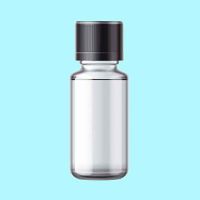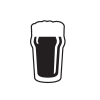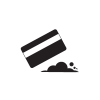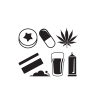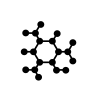Ketamine bladder symptoms, k cramps & what to do about them.
Understand ketamine BLADDER symptoms, k cramps, dehydration and pain. Learn how to reduce risks, spot early signs, and find support.
- What is ketamine bladder?
- Managing the pain of bladder damage and K-cramps
- Ways to reduce ketamine bladder damage risk
- Getting medical help
- Extra resource for services
What is ketamine bladder?
Ketamine bladder is a painful condition caused by ketamine use.
When ketamine breaks down into chemicals in your body, it passes through your kidneys into your urine, which is stored in your bladder.
These chemicals can damage the lining of your bladder, causing a number of symptoms:
- Pain
- Bleeding
- Scarring
If left untreated, this damage can become permanent.
Watch out for the warning signs of ketamine bladder:
- Needing to wee more often
- Sudden urges to wee
- Pain or burning when weeing
- Blood in your wee (urine)
- Pain in the lower belly (near the pubic area)
- K cramps: strong belly pain that feels like squeezing
You can get these symptoms even on days when you haven’t used ketamine.
What increases the risk?
- Using large amounts
- Using ketamine often
- Using daily over a long time
For some people even occasional use can cause bladder problems.
- Your bladder may shrink and scar
- You could damage your kidneys
In severe cases, you might even need to have your bladder removed.
Managing the pain of bladder damage and K-cramps
Taking medication for bladder pain and K cramps
Paracetamol is safe to try. Ibuprofen is also an option, but take it with food and be cautious, as it can sometimes irritate the bladder or stomach.
If you notice worse bladder pain after taking ibuprofen, stop using it and stick to paracetamol instead.
Anyone with kidney problems should avoid ibuprofen without medical advice.
Buscopan (hyoscine) can relieve bladder cramps and pain. You can buy it over the counter in the UK.
Bladder pain from ketamine use often needs medical help. Taking basic painkillers can help mild cases, but it can get worse if not treated.
Don’t use more ketamine to manage the pain. It will do more damage.
Simple, non-medical pain relief tips for bladder pain and K-cramps
- Stay hydrated; small sips are often more effective than big gulps.
- Gentle movement or stretching can help. Some people find that slow walking eases cramps.
- Use warmth, such as a hot water bottle or a bath.
- Peppermint tea or peppermint oil capsules may also help with cramps.
If you’re in pain, it’s best to talk to a health professional.
Ways to reduce ketamine bladder damage risk
Stop using ketamine
For many people with early symptoms, stopping ketamine at the first sign of pain or discomfort can help improve bladder problems and give it time to recover.
Quitting ketamine doesn’t usually cause physical withdrawal symptoms, but you might have cravings, mood swings, sweating, or heart palpitations.
Reducing (tapering) your ketamine use over a few days can help with cravings, especially if your symptoms are mild.
Getting psychological and social support can make quitting easier and more successful.
Cut down if you can’t stop
If you’re not ready to stop, try to reduce the harm:
- Use smaller amounts
- Use less often
- Take breaks to let your bladder recover
Drink water
Drink water before, during, and after using ketamine. It helps flush your bladder and may reduce irritation. Try to avoid too much caffeine or alcohol – both can dehydrate you and make symptoms worse.
Getting medical help
If you experience any bladder problems, get medical advice as soon as you can.
Early intervention can prevent more serious damage.
Even if symptoms improve after you stop using ketamine, it’s crucial to get a medical assessment to check for lasting damage.
Other things, like treatable infections, can also cause ketamine bladder-type symptoms. A doctor can check what’s happening and help you get the proper support.
Extra resource for services
If you work in a drug and alcohol service or support people who use ketamine you will find our ketamine guide for drug workers useful.
Further ketamine information and support
-
Resources for people who use ketamine
-
FRANK
-
People who use ketamine face permanent bladder damage as cases surge
-
Faculty of Pain Management

